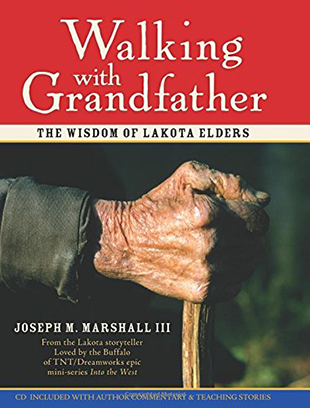"In the Lakota encampments of old, the biggest and tallest lodge stood in the very center of the encampment. There the elders met.
"The oldest men in the village formed the council of elders. There was one basic requirement: Obviously, one had to be old.
"Try to imagine the number of years of experience represented by the village council. Depending on the size of the village, this could vary from hundreds to thousands of years. Yet, the council had no authority. As a matter of fact, there really is no word for authority in the Lakota language. So, how did the council of elders fulfill its responsibility?
"The council of elders fulfilled its responsibility through the power of the influence of their wisdom.
"Various matters of concern and importance were brought to the council — from everyday life issues to matters of war. Every issue was discussed at length, sometimes for several days and nights. At the end, the council didn't issue ultimatums or edicts. They simply informed the people what they thought. That opinion, or opinions, was the basis for action because of the depth of the council's wisdom.
"The Lakota consider fortitude, generosity, bravery, and wisdom to be the four greatest virtues. In any discussion or mention of these virtues, wisdom is invariably the last to be named. However intentional or unintentional that may be, it is entirely appropriate because wisdom is not only the greatest of the four greatest, it is also the most difficult to achieve. Furthermore, wisdom is associated with old age, and that, too, is entirely appropriate because wisdom cannot be had in ten easy lessons. One has to live a long life to gain wisdom, and it is regarded as life's gift by some who finally achieve it. It is, many also realize, a gift they cannot keep to themselves. It must be given back to life."
